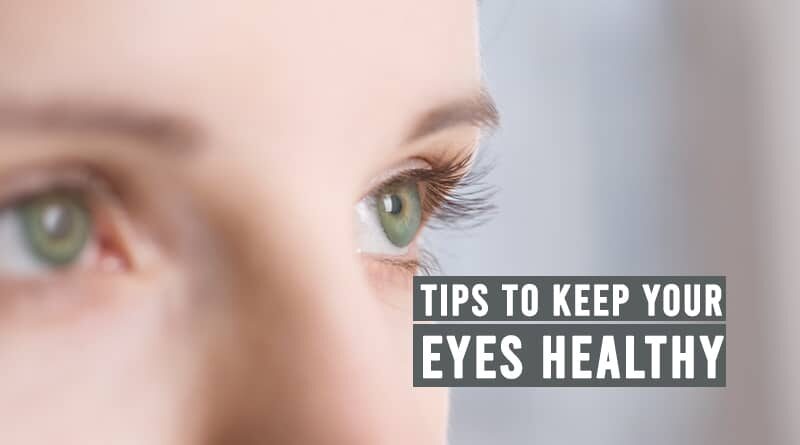6 Tips to Keep Your Eyes Healthy
Most of us rely on our eyesight every day to function, but shockingly few people are proactive about taking care of their eyes. It is common knowledge that our vision is likely to change over time. Still, many people are unaware of the wide range of diseases and problems that eyes can develop and the importance of early detection. Without proper care and attention, these diseases can lead to vision loss.
If you want to keep your eyes healthy and your eyesight at its best for as long as possible, here are six essential tips to keep in mind.
Table of Contents
Tips for Healthy Eyes
Lead a healthy lifestyle
The foods we eat impact our health directly, and there are plenty of foods that are known to be beneficial to eye health, such as fruits, vegetables, and fish (which is also high in omega-3 fatty acids (1)). Exercise brings many health benefits, including reduced blood pressure, lower cholesterol, and decreased risk of obesity-related diseases such as diabetes. All these issues can lead to vision problems, so regular exercise is as essential for eye health as it is for your heart and lungs.
Read: Why Do My Eyes Hurt?
Wear high-quality sunglasses
UV rays from the sun can cause significant damage to our eyes and can cause premature degeneration and cataracts. To reduce this damage, you should wear sunglasses on mainly sunny days or when you will be spending a lot of time outside. Be sure to check that they filter out 99–100% of UV radiation, as some sunglasses are designed for style rather than function.
Attend regular eye exams
When we are children, we have regular eye exams to check that our eyes are developing well and that we do not need help with our vision. Adults often neglect to attend regular appointments, especially if they are not experiencing any particular issues with their eyesight. However, attending regular optometrist appointments makes it much more likely that an eye disease will be caught in its early stages—when it can be treated more easily.
Read: Coloured Contact Lenses
Look into your family history.
Some eye diseases are inherited, so it is worth discovering if someone in your family had problems with their eyesight. If you might be at higher risk of developing certain conditions, an optometrist can perform regular screening to catch early signs and provide the treatment as soon as possible.
Prevent eye infections and injuries
It is essential to avoid infections and injuries as far as you can by avoiding touching your eyes unless you have just washed your hands. If you wear contact lenses, it is essential to follow the manufacturer’s instructions and replace them as needed. It might also be necessary to wear eye protection when playing sports or working with tools or chemicals that could hurt your eyes. Smoking cigarettes can also lead to damaged optic nerves.
Read: Tips For Protecting Your Hearing
Rest your eyes
Many people spend much of their work and free time staring at the screen of a computer, tablet, or phone, leading to tired and strained eyes(2). Remember to look away from your screen every 20–30 minutes (for about 20 seconds) to give your eyes a rest.
Recommended Articles:
Important to Maintain Contact Lens Hygiene




